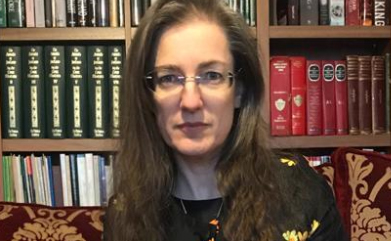The best job in the world?

A Fellow of the Irish Computer Society, Aileen Wynne is part of the GSE UK leadership team and is responsible for organising the ‘Women in IT’ stream at the annual conference.
I love mainframe. I have the best job in the world … if you’re me. If you’d told me this when I was leaving school, I’d probably have laughed. I love the challenge, the variety and the fact that no matter how good you are, there’s always more to learn.
When I was at school, my Dad worked in the bank’s ‘computer department’. I grew up with him working weekends and getting called in, sometimes overnight, to fix things. He was great at what he did. There were always women on his team, working on the various projects.
When I left school, my mother decided I ought to study Computer Science as one of my degree subjects. I hated it. Around the second week, when they were describing what a computer was, a boy asked “What about mainframe?” The lecturer said there were only five or six still in use and they were being phased out. I was too shy to speak up but knew that didn’t sound right – that’s what my dad was working on. I left college deciding I was never going to work with computers: I hated them. (I’ve since revisited that lecturer and he was amazed when I told him I was a mainframe systems programmer and that Ireland had a growing number of mainframe sites).
Some years and one career later, I decided working for a bank was a good idea – stable and pensionable – and ended up in the mainframe network team. There were always other women on the mainframe teams. It was normal. In the first couple of years, I saw women promoted just before they went on maternity leave, then coming back to their new leadership role. This didn’t happen in general in other areas of the bank, or in insurance where my sister worked. Outside of IT, there were very few female senior managers; it always a male-oriented club.
What really surprised me, in the early days, was the difference between what I was used to in Ireland and what I experienced in the UK when I went on training courses. In my job, I wasn’t the youngest nor was I in a small minority. When I went on training courses in the UK, I was the youngest by far – and was the only female for a couple of years. Once IBM opened its centre in Eastern Europe and began sending its employees to the UK for training, there were younger people, and more women on the courses.
In fact, when I joined the bank, my Dad had suggested that I not only join the Irish Computer Society but also its Women in IT group. Then, I didn’t fully appreciate the need for such a group so didn’t bother. My view has since changed.
I joined the GSE UK conference planning team four years ago. The first year, I ended up talking to quite a few of the students, young women who were interested in a career in IT, but unsure about how to deal with the lack of female representation – something that I’d never really experienced. As a result of those conversations, the WIT stream at GSE UK was born. We’ve been lucky to have the phenomenal Resli Costabell to chair our panel sessions. An international award-winning speaker, trainer and coach, Resli is a huge asset and a great role model.
We firmly believe the WIT stream is an important addition to the more technical streams and training that have traditionally formed the core of the GSE UK conference. It’s a place where we can have open and engaging conversations about female representation in the industry, diversity and other relevant issues. Far from being ‘male bashing’ as I think some people may think the stream is, it’s about discussing how we can help and encourage more young women – actually, more young people and more diversity in general – into the industry. At the last conference, we looked specifically at ‘creative thinking’.
Things are better now in colleges and universities. They no longer say “the mainframe is dead” – far from it – although there are still too few mainframe courses being taught. We’ve seen the rise of apprenticeship programmes. I think the industry is recognising that it needs to use multiple ways and means to get the new blood required to support critical infrastructure including mainframes.
We need to keep having those conversations. More women and young people coming into the industry is great but we still need more. For me, if you want to be challenged and to keep learning as long as you’re working, then mainframes are the best career in the world. If you’d told that to a young Aileen, I simply wouldn’t have believed you.
Aileen Wynne has been part of the GSE UK team since 2016. A mainframe systems programmer with AIB, she has 20 years’ experience in systems programming, networks, storage, and onsite and remote support. All views expressed are her own and not necessarily those of AIB or GSE.